Ten Days In Turkey
Lessons on the Road
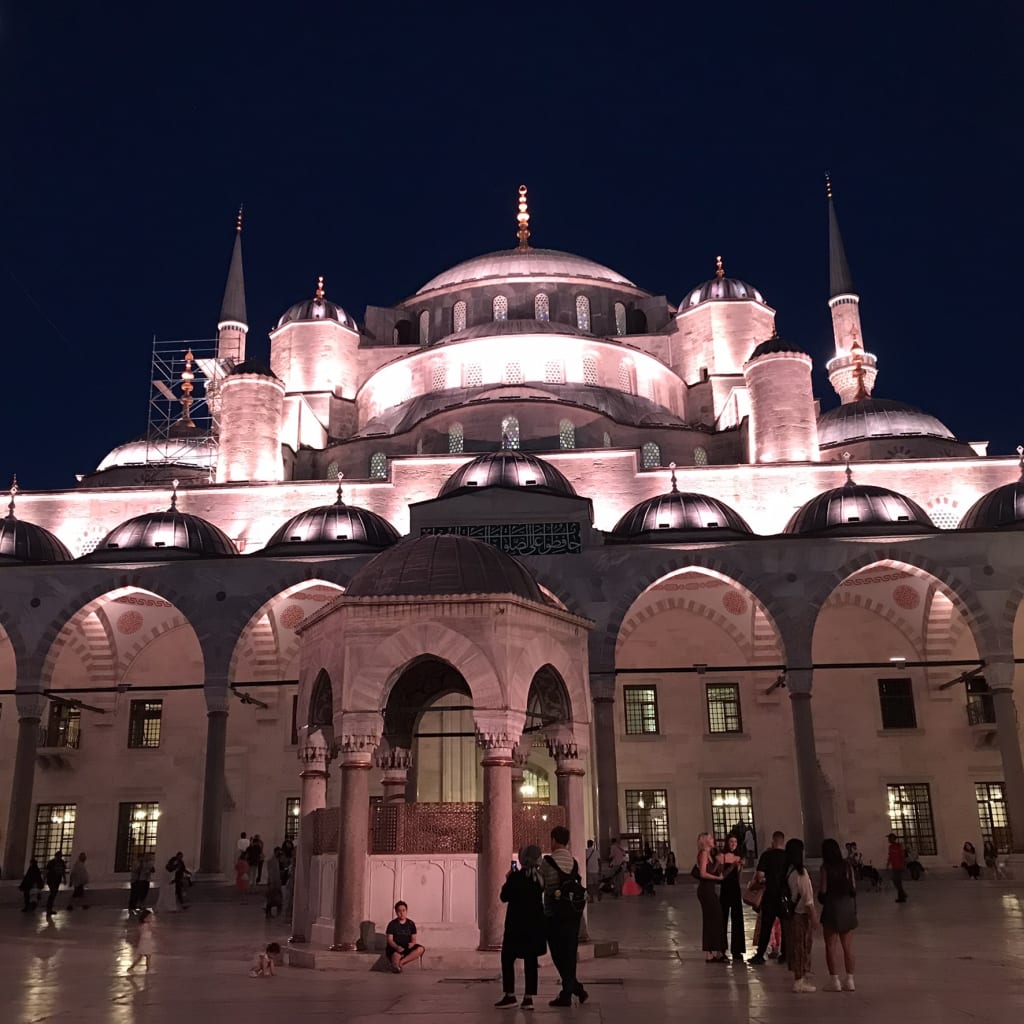
Istanbul is a city bristling with life. The past and present, the sacred and the profane rub shoulders in seemingly easy commerce under the shadow of the Sultan Ahmet Mosque, which overlooks the Golden Horn inlet and traces its origins back to the early 17th-century days of the Ottoman Empire.
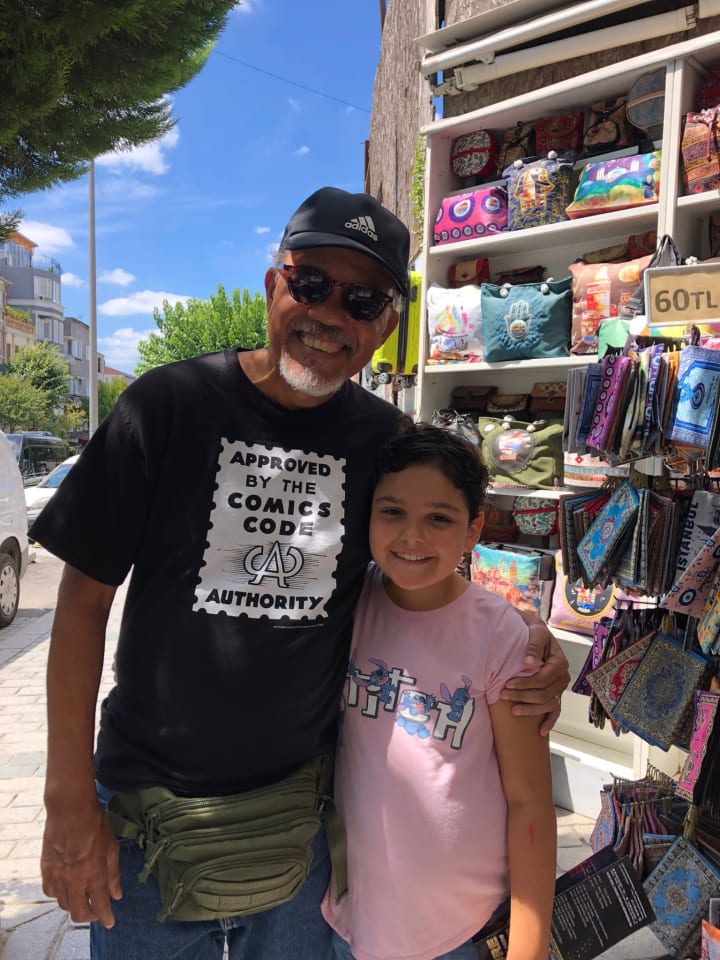
What makes the visit even more interesting is that I’m seeing this historic city through the eyes of my nine-year-old niece, Maya. Even though she was born in this city that straddles Europe and Asia, she is curious about Istanbul's rich history and diversity, similar to mine. As we explore its winding streets and marvel at the architectural gems, Maya and I exchange notes on our adventures across this vibrant crossroads of cultures.
I think I’ve finally understood why Baldwin said this city “revived” him
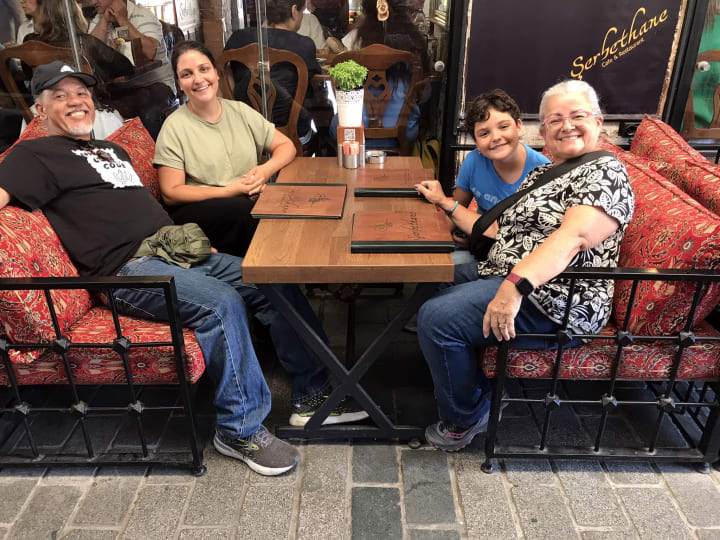
The Sunset Hotel
Under the shade of privets
Jazz from down the street.
2
In a barbershop
Drinking a cup of black tea
A cat has claimed me.
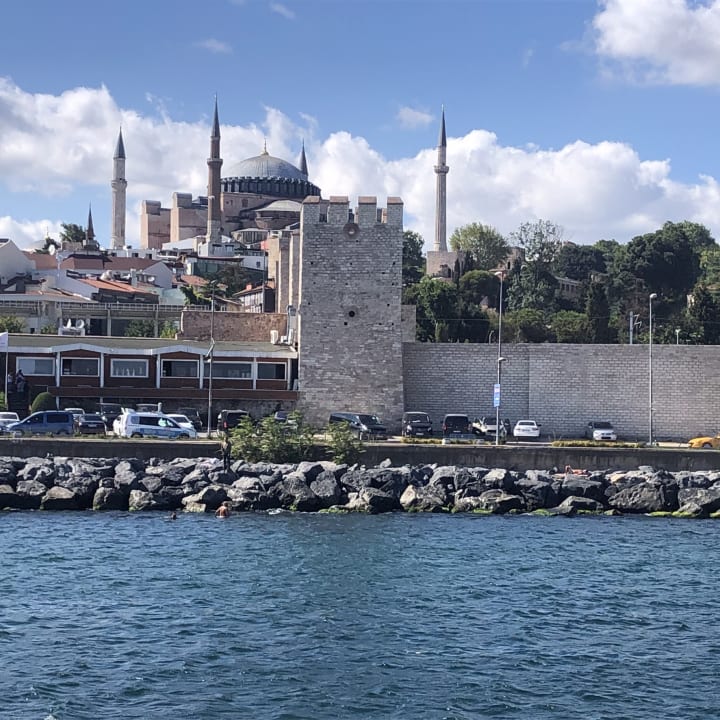
On the Bosphorus
Under Sophia’s shadow—
Dolphins behind us.
A sweltering day
Listening to street performers—
Under the grapevines.
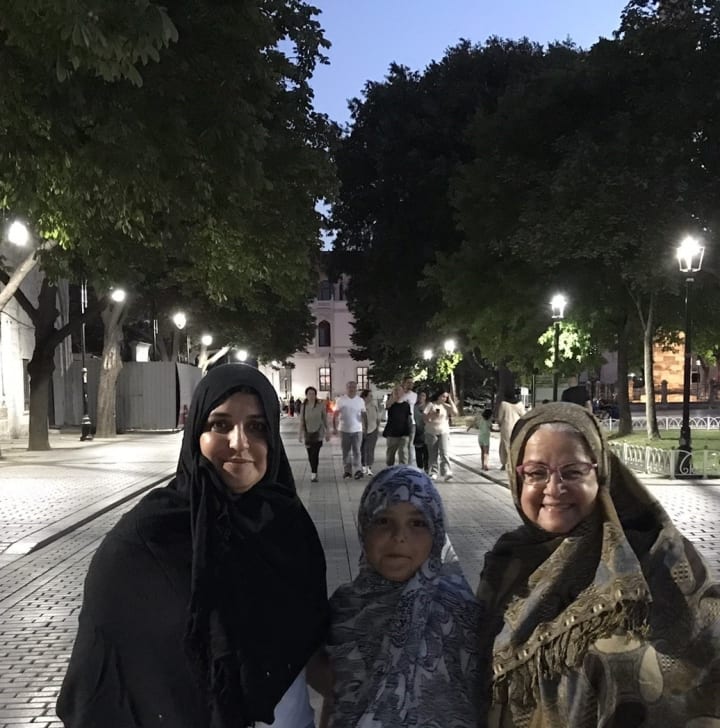
Near Sultan Ahmet
We hear the call to worship
Like Baldwin heard it.
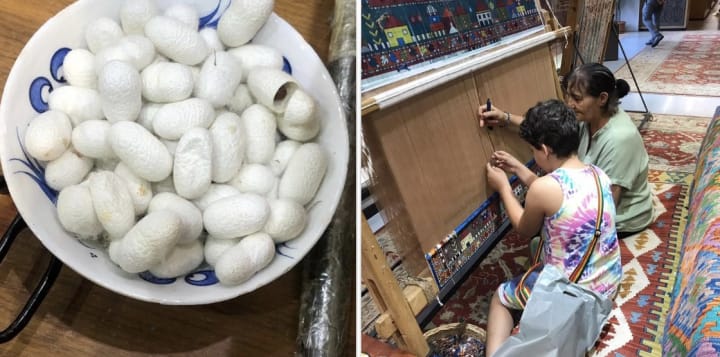
From silk worm cocoons
she'll weave her people's story
into a pattern.
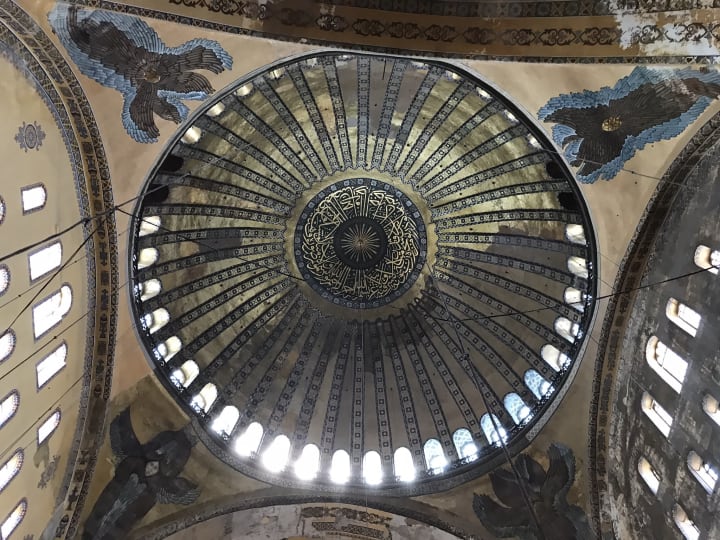
In Sultan Ahmet
Where the Light of Allah shines
We enter barefoot.
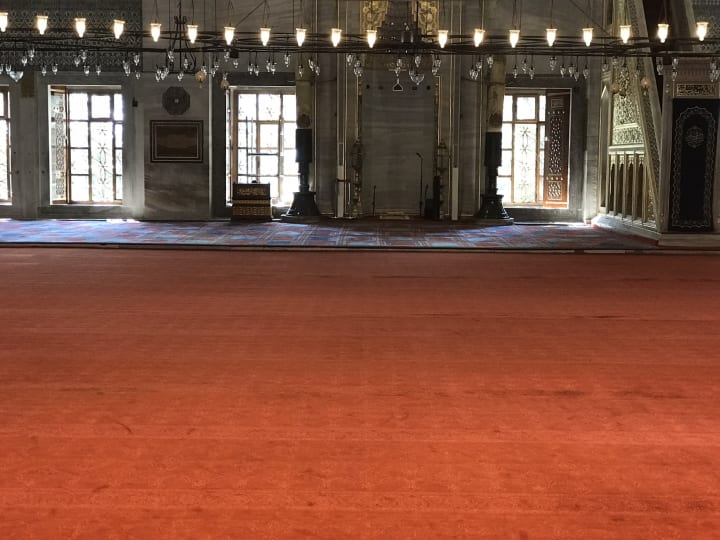
Across a border
Where the faithful face Mecca
Prayers like incense.
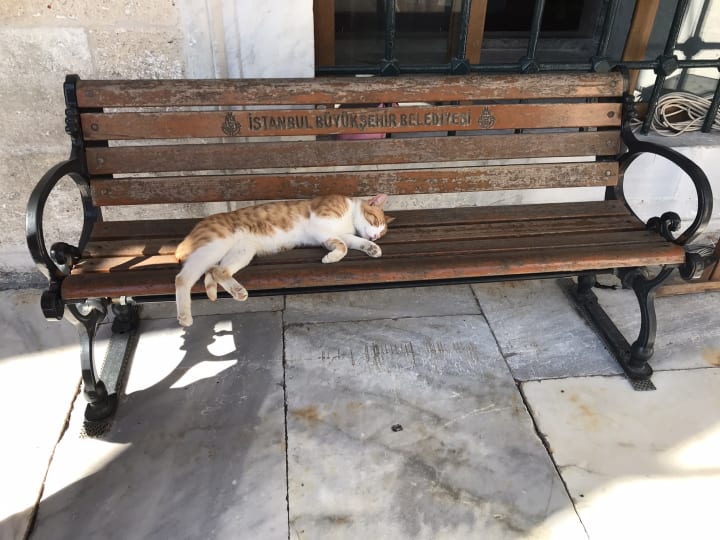
Outside the Blue Mosque
Where we walk into sunlight
Cats doze in the shade.
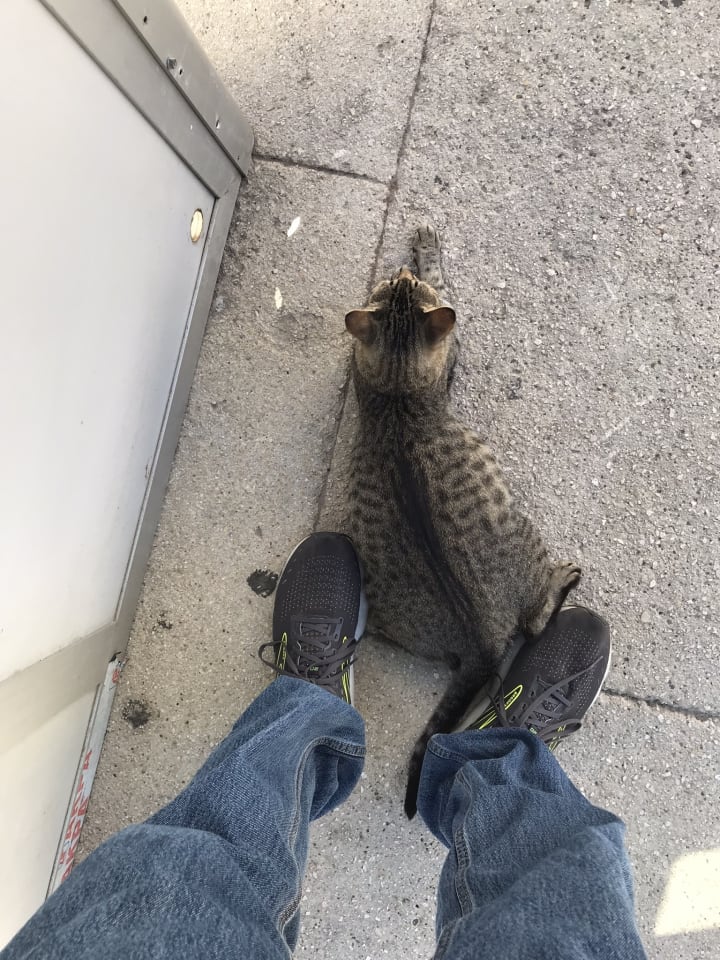
Beside the maples
A pregnant cat rubs my ankle
Lies between my feet.
In the August heat
Near Sultan Ahmet Mosque
Cool spray from fountains.
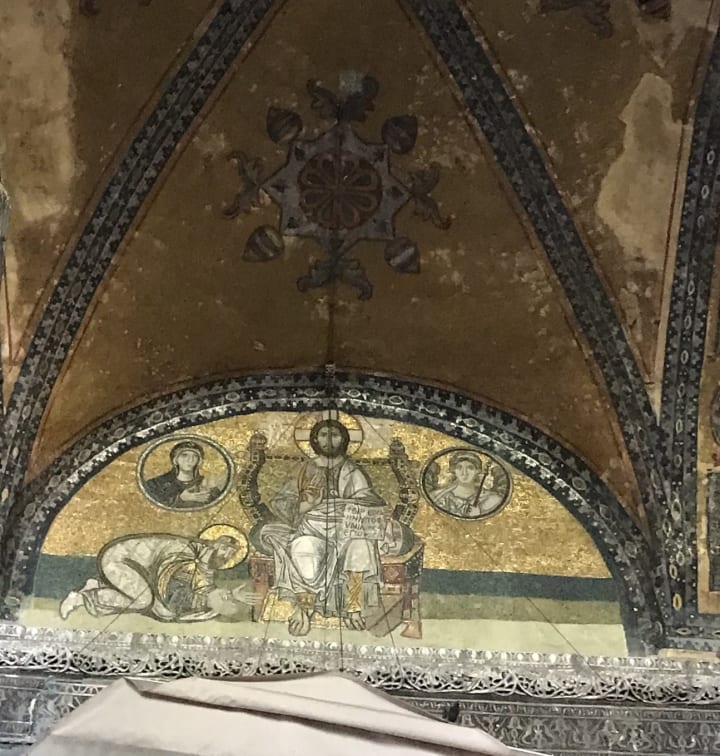
Inside Wisdom’s House
A church in the Roman times
Changed into a mosque.
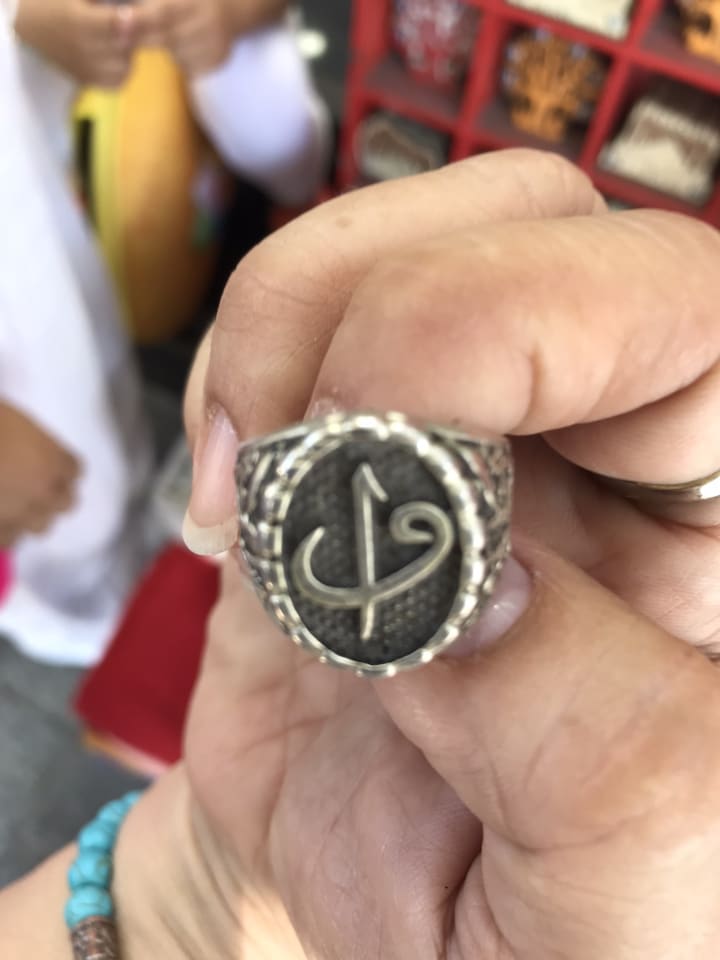
An Instanbul store
I buy a worthless signet
That means everything!
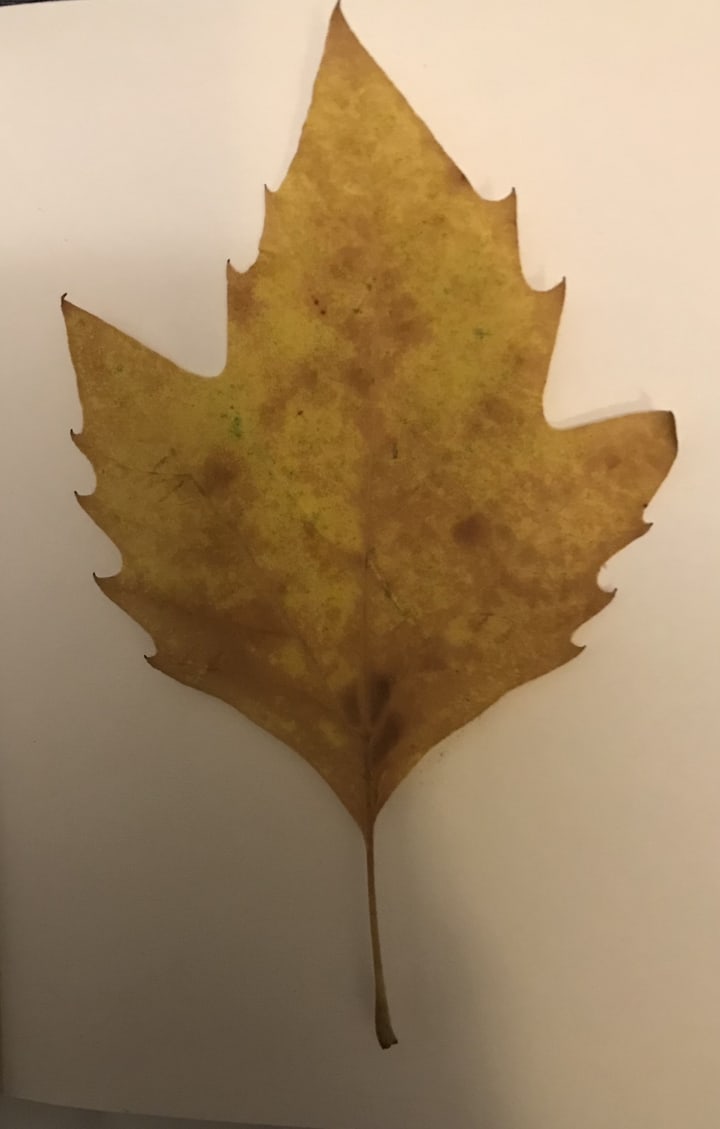
Tokapi Palace
Waiting in the entry line
Greeted by a leaf
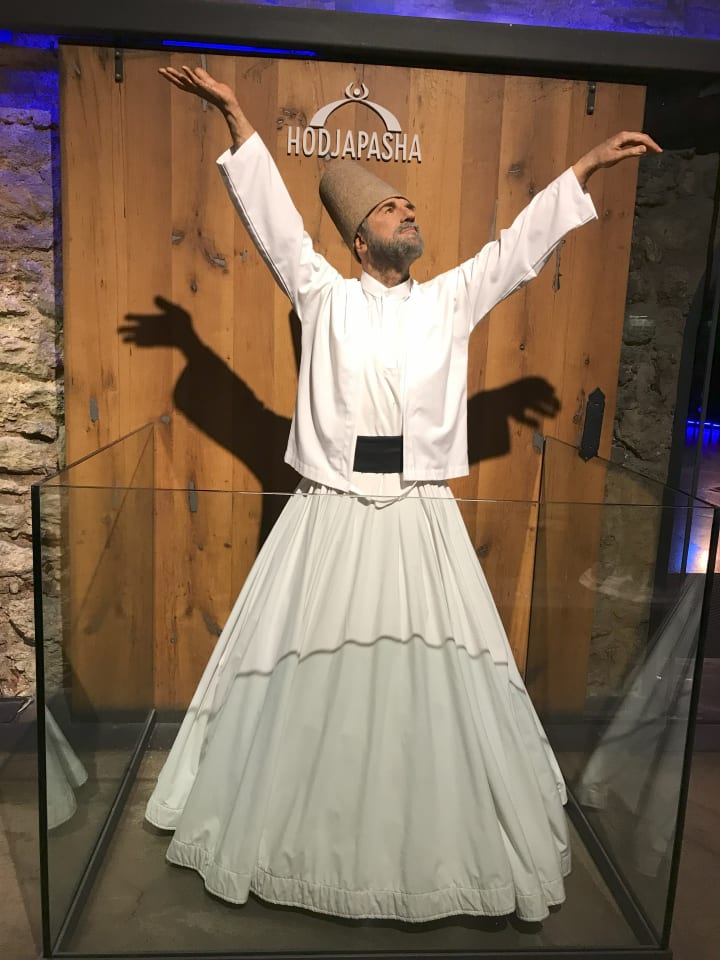
I had planned to visit Konya, where Rumi, the mystical Sufi teacher and poet of divine love, is buried, but things didn’t work out. Rather than staying upset – something I’ve had to unlearn on this trip – I went to see the Whirling Dervishes at Hodjapasha.
No photography or video was allowed, but it was a joy to see my niece's eyes light up as the dancers entered the stage in long white robes and tall conical hats and spun rhythmically in a circle to music. The spinning is meant to induce a trance-like state that symbolizes the dervish's desire to shed his ego and worldly concerns, submitting himself entirely to God.
As they spun and I looked at my niece, I remembered lines from Rumi:
Don't weep, anything you lose comes round again in another form.
The child weaned from mother's milk now drinks wine and honey mixed.
God's joy moves from unmarked box to unmarked box,
from cell to cell, as rainwater down into a flowerbed.
~Rumi
With one hand held towards heaven to receive God's blessings and one hand down to the earth, the dervish channels those blessings to humanity:
Whoever you may be, come.
Even though you may be an infidel, a pagan, or a fire-worshipper, come.
Our brotherhood is not one of despair.
Even though you have broken your vows of repentance a hundred times, come.
~Rumi
For a moment, we entered that circle of grace.
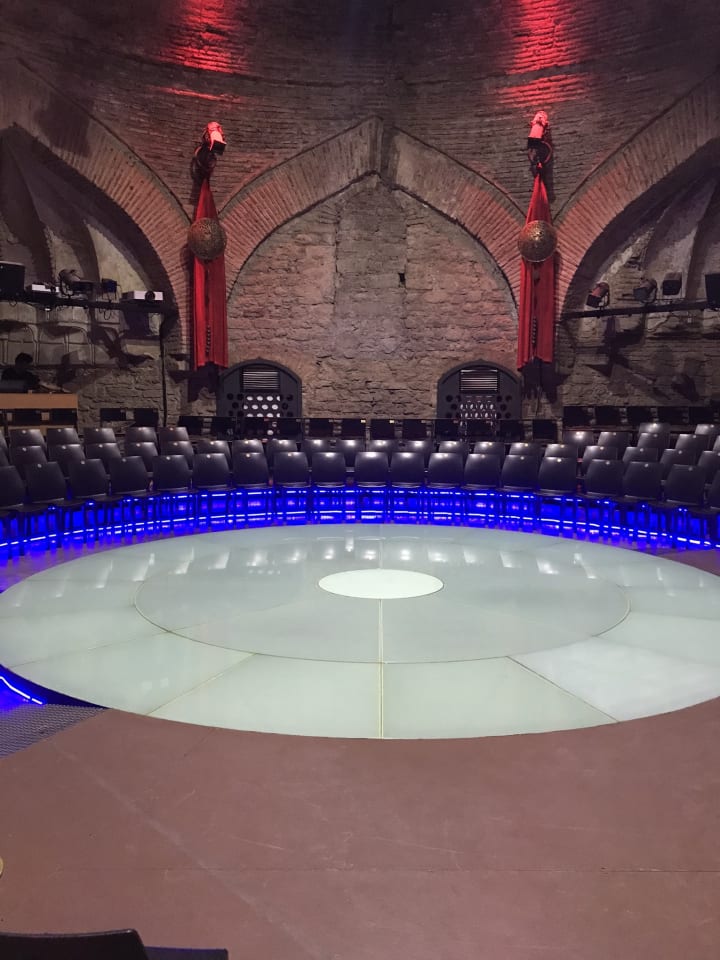
At Hodjapasha,
Witnessing the dervish where
The Master vanished.
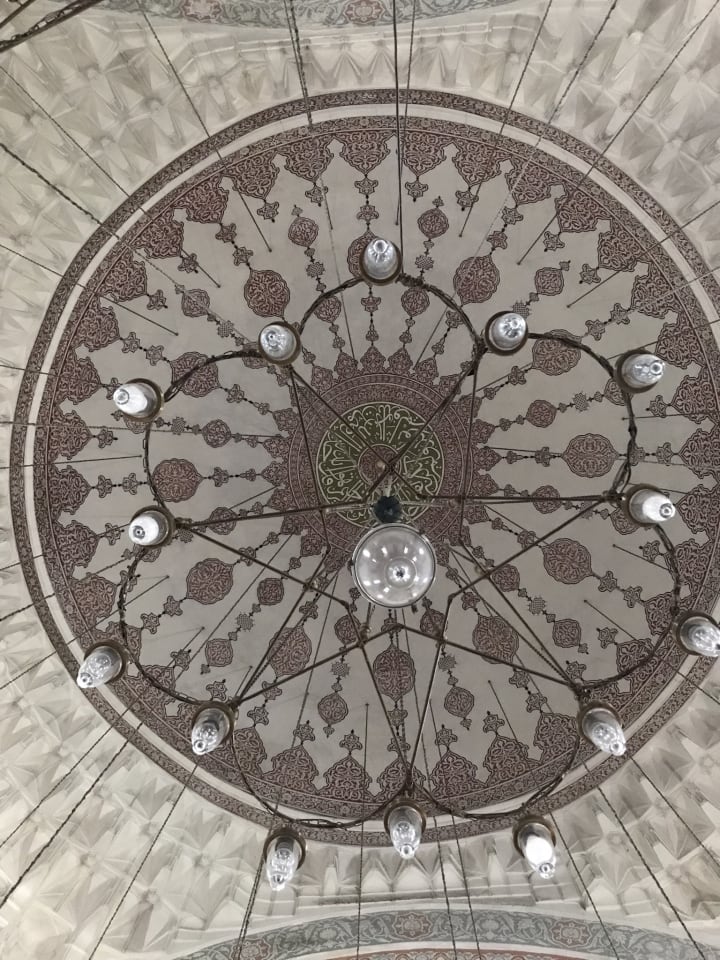
Firuz Aga Mosque
The bell of a passing train
A wall clock ticking.
Inshallah has been creeping into my vocabulary. I guess it fits with the idea that "nothing happens before its time" or the Jamaican saying (translated) " What's meant for you cannot pass you by."
Still, I have doubts. Do I push forward or do I wait patiently? Can anything unfold without my effort? For I am still a tangle of desires.
But sitting here in the cool of our kitchen overlooking the red-tiled houses, the shades of green in the valley, the blue hills in the background interrupted by scars of yellow against clouds that resemble shredded papier-mâché, I can only say: Inshallah, my children will find the "grace to transform their pain." Inshallah, my work will find a home. Inshallah, we will all find peace.
The Call to Prayer
Resounds across the mountains
O, holy moment!
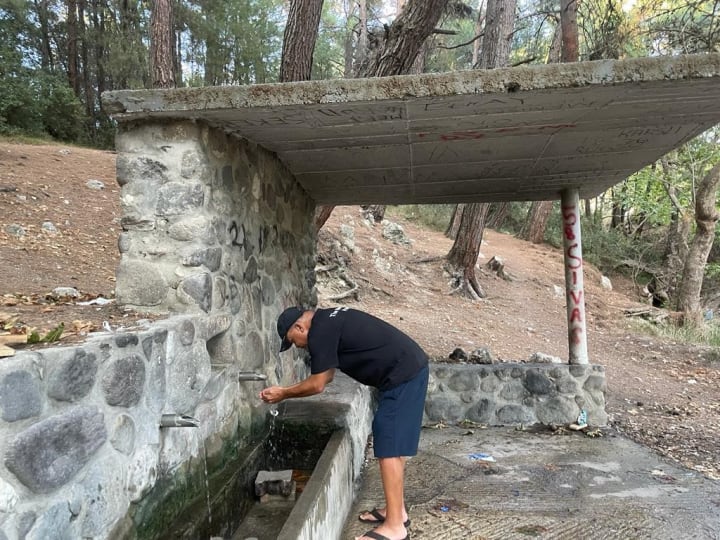
On a gravel road
Down a path lined with thistles—
Water from a spring!
Under Olive trees
The music from grazing sheep
Shepherds at sunset.
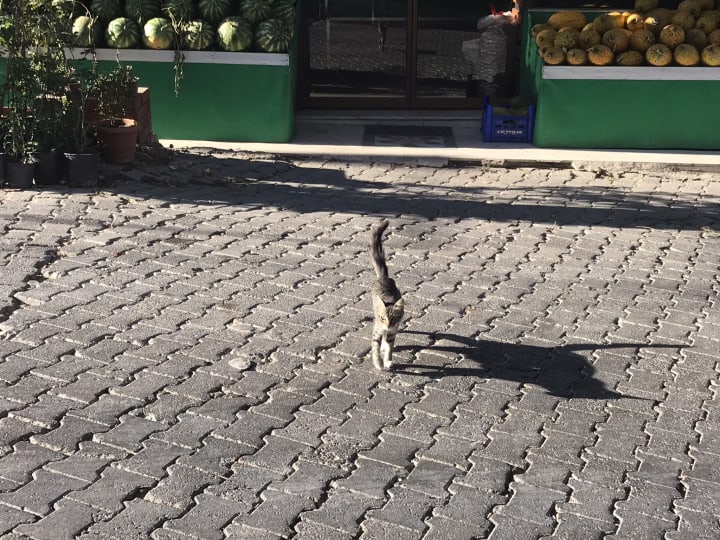
Near the store’s entrance
Cats, beloved by the Prophet,
Wander in and out.
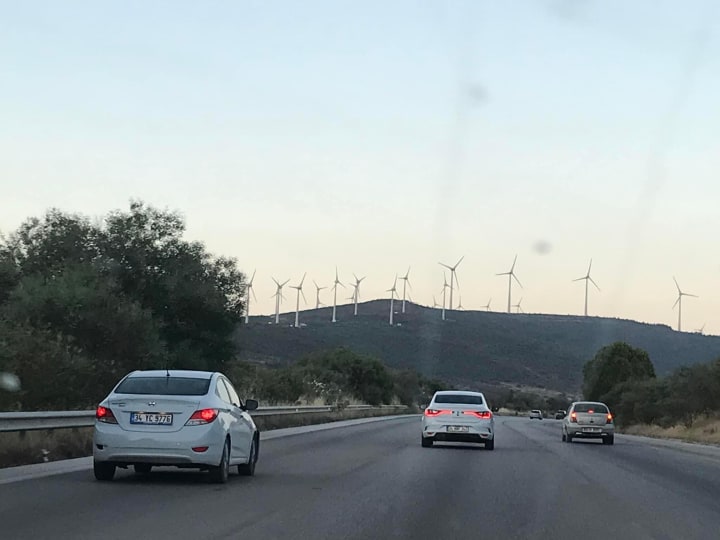
Along the highway
Windmills whirl in a dervish
In the late evening
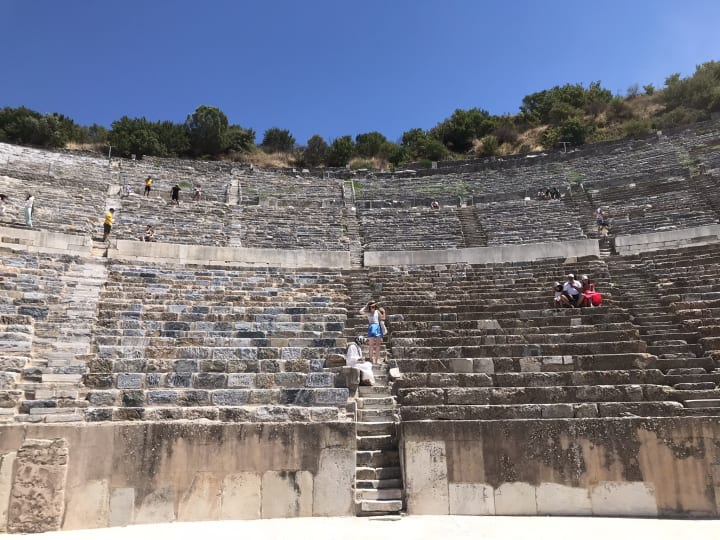
Lines from Basho's haiku ran through my head as we walked through the ruins of Ephesus, the former Roman capital of the province of Asia on the western coast of Anatolia.
The summer grass
is all that's left
of an ancient warrior's dream.
Earthquakes and raids by Goths, among others, decimated Ephesus. What remains is only a shadow of the city’s former glory.
Standing in front of the Great Theater that had hosted religious ceremonies, theatrical performances, and gladiatorial combats, I couldn’t help but think about the sweat that went into constructing this cathedral of stone meant to shock and awe visitors. As I ran my hand along a fragmented column, I could almost hear the clash of swords and the crowd's roar calling for blood.
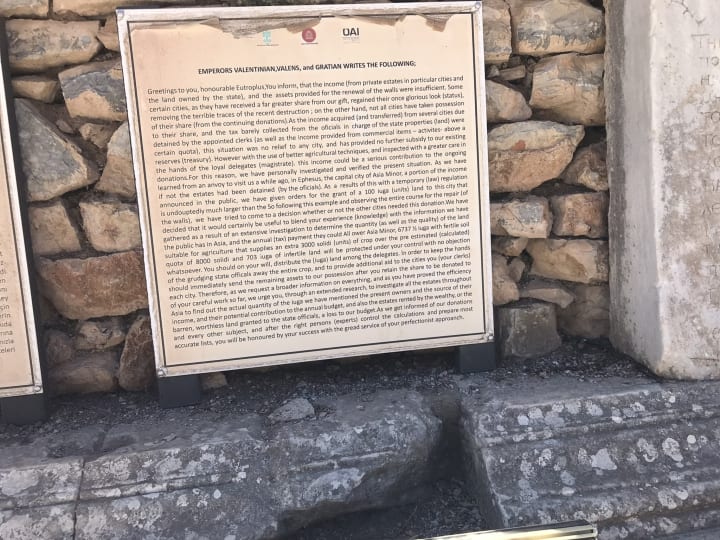
Then there was the inscription from the emperors, Valentinian, Valens, and Gratian, complaining about insufficient taxes, grudging state officers, and a request to investigate all estates in Asia to determine sizes, owners, income, and potential taxes, including rented and poor quality land. We no longer have emperors, but some things never change.
Walking through the ruins
Questioning the stones, “When
Am I in history?”
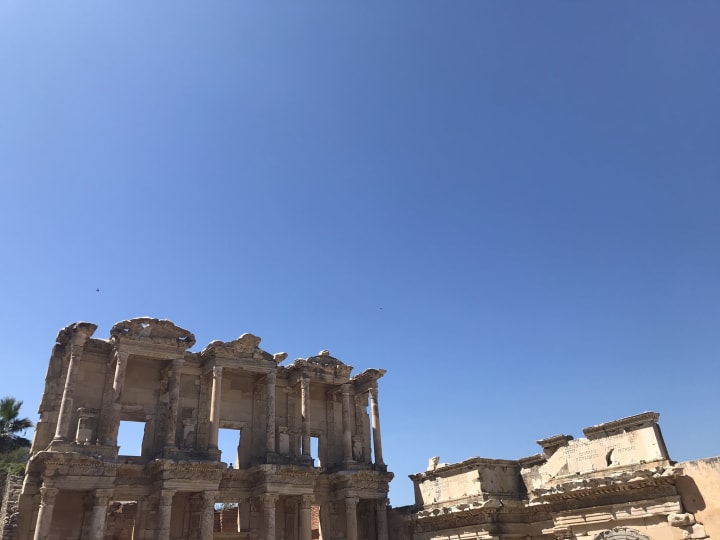
Down Curetes Street
Past porticos, ants busy
With their colony.
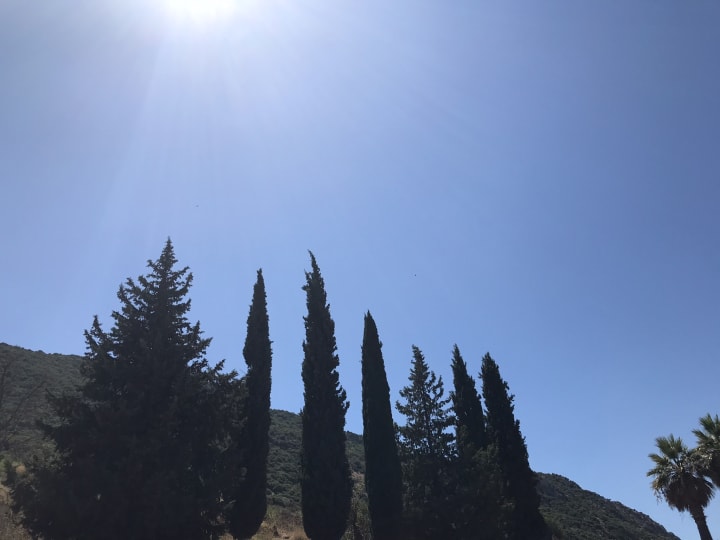
The swallows circling
Library of Celsus feast
On moths in mid-flight.
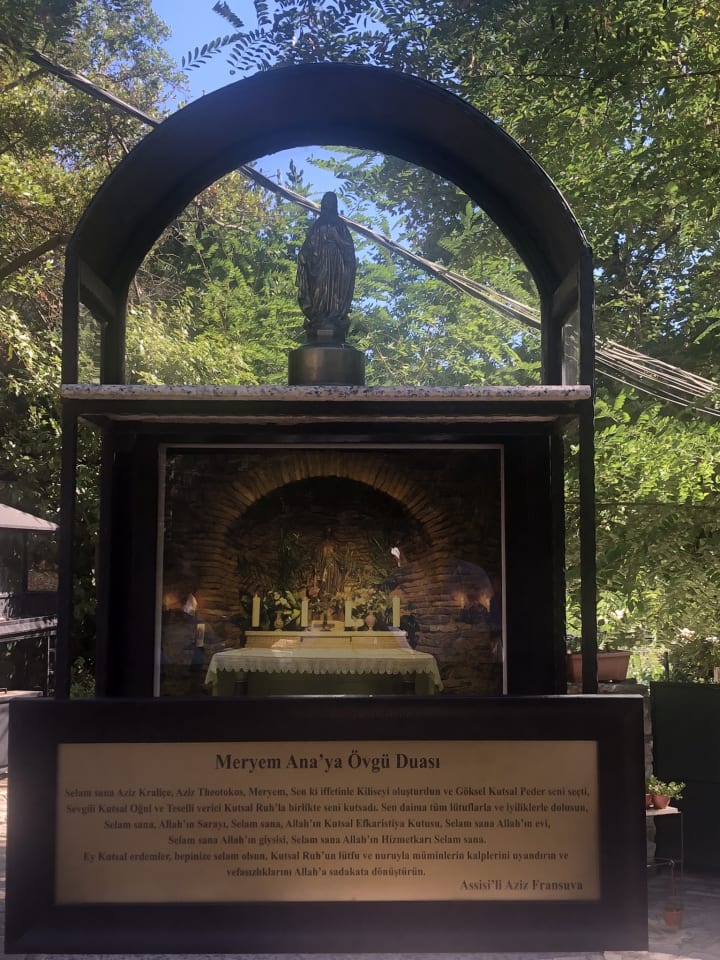
When we reached the entrance to Mary’s house, the police told my sister-in-law that she could’ve driven her car into the protected area because she had the elderly with her. At first, I was angry because although I am now regarded as a senior citizen, “elderly” was just too much.
But the more I thought about the word, as I walked through the plain, stone house, divided into a kitchen, living area, and sleeping quarters where pilgrims throughout the centuries decorated the walls with religious icons, the more I appreciated being in the place where Mary, the mother of Yeshua, spent her final days on earth.
Under the windmills
The House of Mary welcomes
The weary pilgrims.
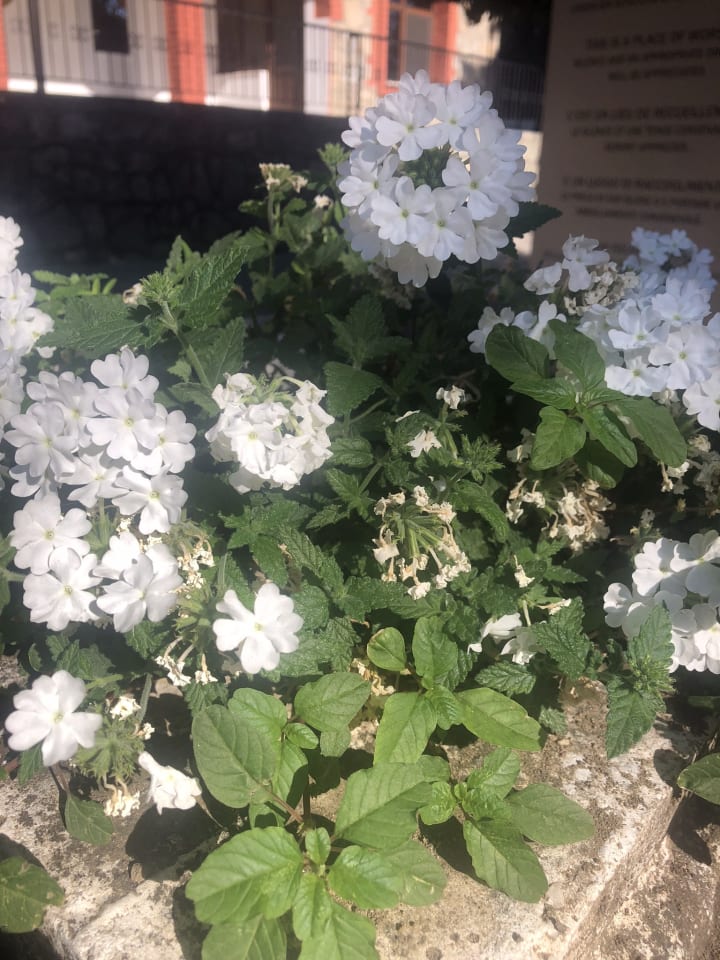
In a plain stone house
Where the Virgin took refuge
Crowns of verbena.
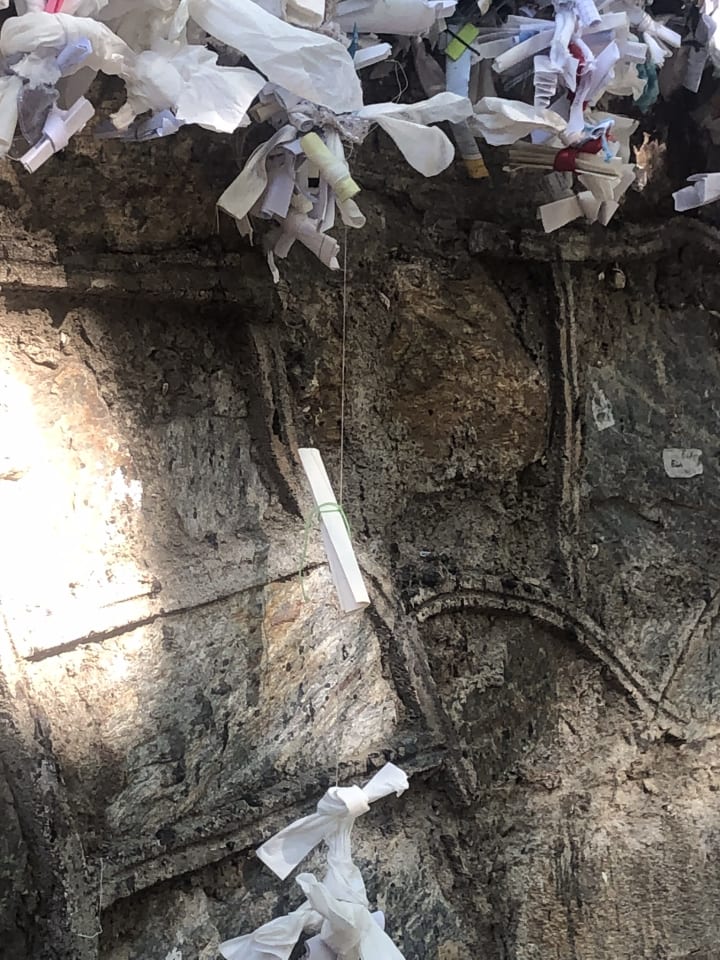
Under the maples
We pin dreams to the Virgin,
On a slender thread.
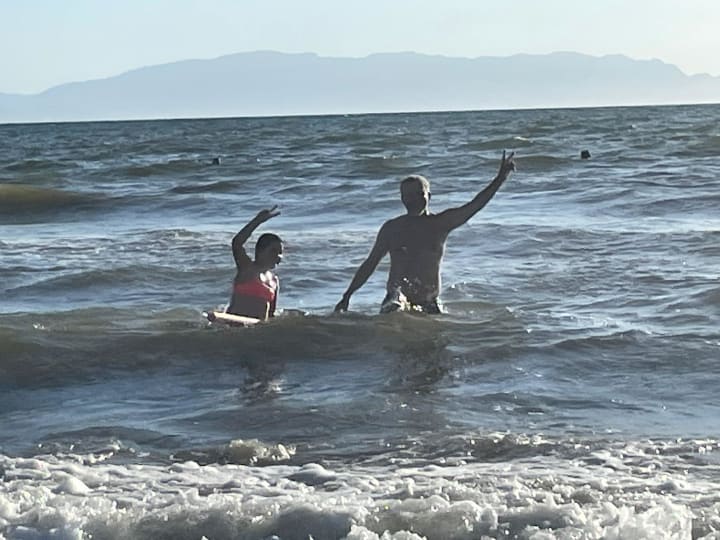
Forget Ephesus! Forget the House of Mary! The beach at Pamucak was what my niece, Maya, had been looking forward to for the whole week.
I couldn’t understand it. The water looked murky and was unlike anything I'd seen in the Caribbean or the USA. Still, she was excited and dashed headlong into the water.
I followed her, of course. During this trip, she has brought out my most protective instincts; like her father, she is a fearless soul.
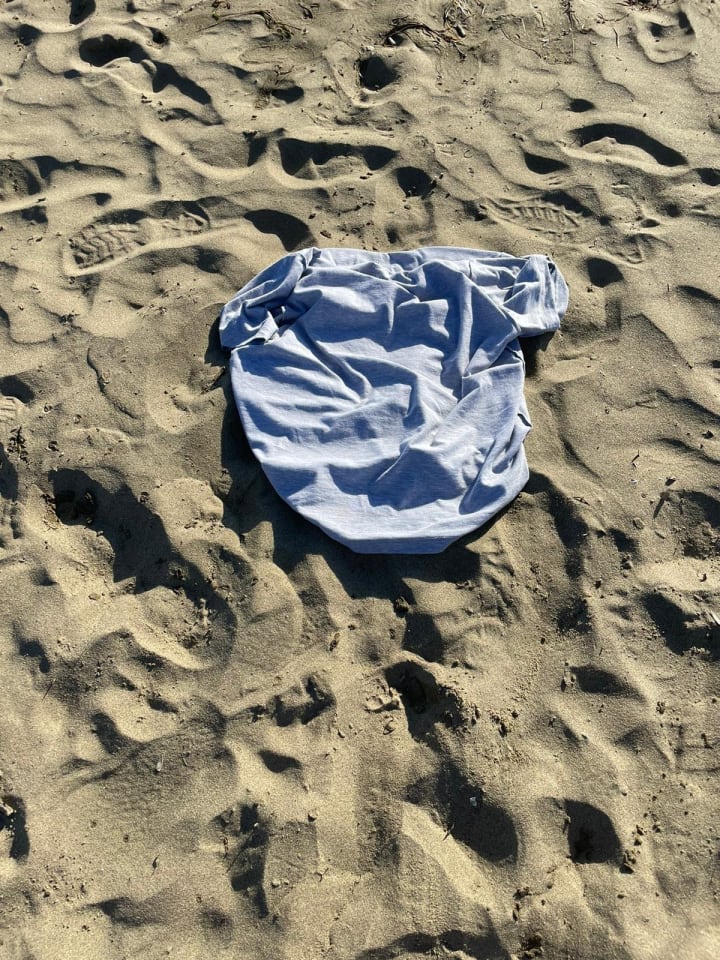
Beside the shoreline
A half-buried undershirt—
Grief I left behind.
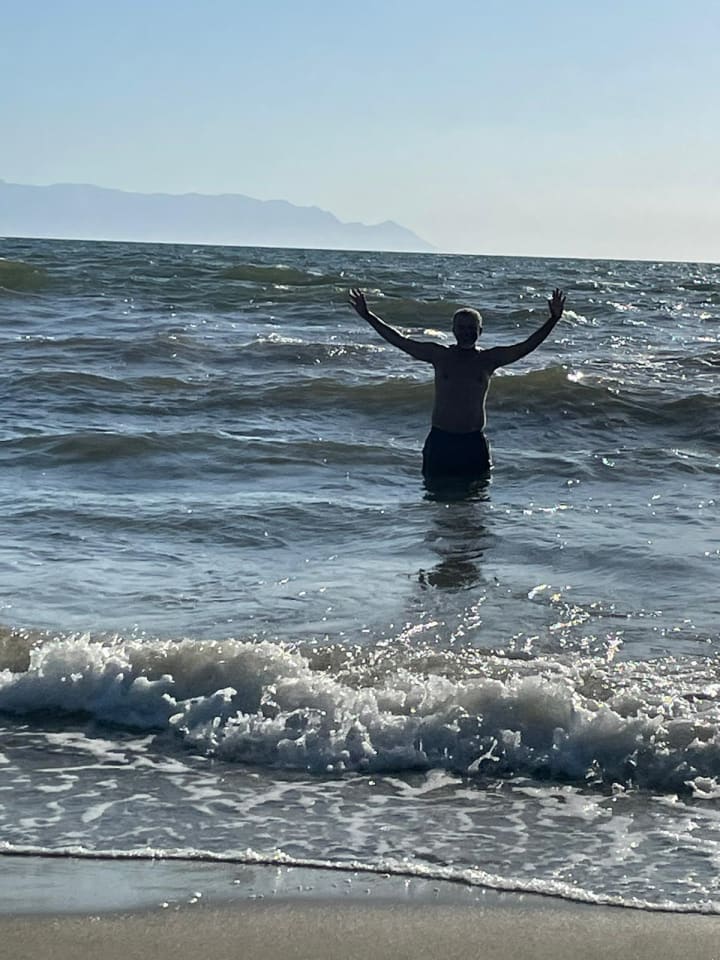
Mountains before me
I wade into the water for
Yemaya’s blessing.
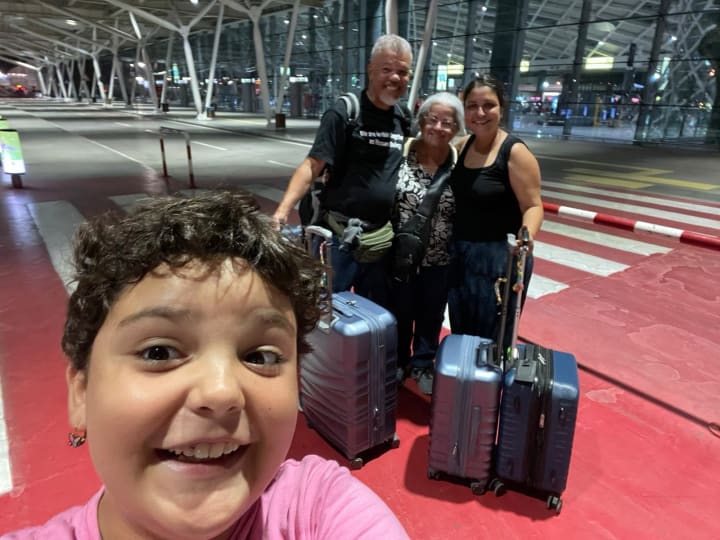
I hadn’t slept for 24 hours, and I was bone tired.
The cheapest return flights I could get would take us from Izmir to Istanbul, Istanbul to Paris, Paris to Toronto, and Toronto to Fort Lauderdale.
What made it worse was Istanbul Airport, with its glitzy stores and symbols of wealth, didn’t have any comfortable spots to rest or sleep, and I am still unable to sleep in public areas.
I was grouchy, and my morning breath was kicking in. It didn’t help that there was nonstop music from a nearby technology store.
An alarm went off. A young man woke from his slumber, turned his back to us for a few minutes, rolled out a prayer mat, and began the day's first prayer.
And this is what I’ve learned to admire about Islam. He was probably as tired as I was, yet he took the time to spread his rug facing east to perform the Fajr prayer.
Whether it was perfunctory or not, whether he was doing it for show, I don’t know, but I don’t think so. I will give him the benefit of the doubt even as I perform my own morning act of praise.
A fellow pilgrim
Though he can’t see through the walls
Bows before sunrise.
About the Creator
Geoffrey Philp
I am a Jamaican writer. I write poems (haiku & haibun), stories & essays about climate change, Marcus Garvey, music icons such as Bob Marley, and the craft of writing through personal reflection & societal engagement.






Comments (1)
Through your eyes, your journey, brought your word pictures to life, like I have never seen before. Thanks for taking me on this journey 🙃